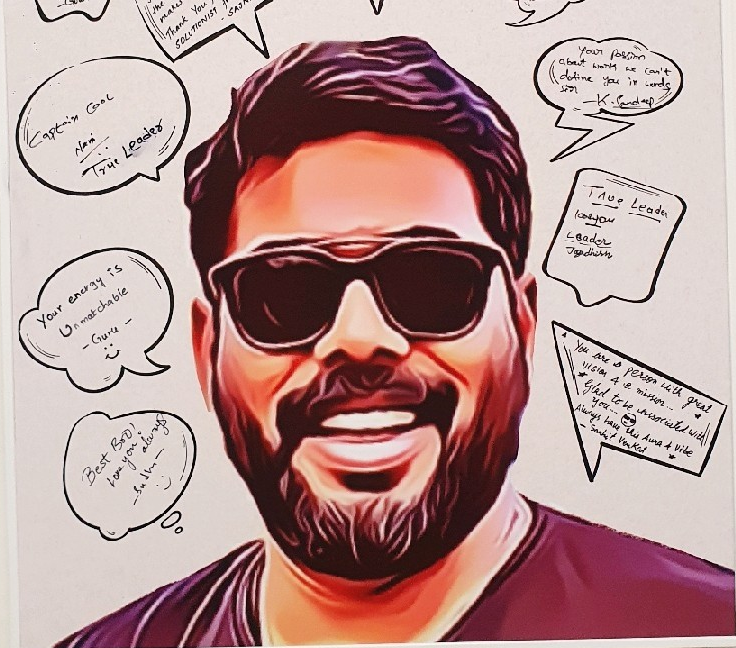
The job market today is more competitive than it has ever been. We are already seeing mass layoffs, and more are on the way. With all of these layoffs and mass firings, getting yourself to a job interview appears to be a difficult nut to crack. Why waste such wonderful opportunities with a sloppy resume?
Your resume is your official spokesperson. It talks to your employer even before you talk to them. So get creative and be prepared to make some commendable changes to your dull resume to make it more interesting. If you’re unsure how to make your resume interesting, don’t worry.
We’ve done the research for you, and all you have to do now is implement these simple changes to make your resume stand out from the crowd. This would hardly take a few hours of your time but trust us, the time you invest in this process will give you multi-fold returns.
Remember that professionally crafted resumes not only help you land a job interview, but they can also increase your earning potential by 7%. Now that you understand why resumes are important, let us get right into the 7 simple changes you can make to make yours stand out.
1. Custom Objective
Most candidates would never do this. However, this one change can help you get noticed in the first place. Align your objective with the role you’re applying for by making only a few changes to the Objective section.
It does not imply that you must create a new resume for each job application. All we mean is that you should include a few lines in your objective section describing how you are a good fit for the role based on the job description. Use keywords from the job posting to make your objective stand out.
Interviewers often read only the objective closely and skim through the rest at a glance. So, why not catch their attention right away in the objective section?
If a job description states that you should be “coordinating with development teams to determine application requirements,” add to your objective that you are “a team player willing and able to coordinate with peers and understand the requirements.” It’s as simple as that.
2. The Briefer the Better
 Your resume should ideally be two pages long. Try to summarise your experience in two pages. No recruiter would have the time to read your entire resume. Concentrate on the objective section, headers, and sub-headers that they will most likely read. Eliminate the fluff to make it crisp and concise. Try to describe your accomplishments, achievements, education, interests, and so on in a few words.
Your resume should ideally be two pages long. Try to summarise your experience in two pages. No recruiter would have the time to read your entire resume. Concentrate on the objective section, headers, and sub-headers that they will most likely read. Eliminate the fluff to make it crisp and concise. Try to describe your accomplishments, achievements, education, interests, and so on in a few words.
We agree that it is not easy as it sounds. Remember, ‘Simple is the most complex thing.’ So, you have to really put in your brain and time to get your resume short, and concise. By being short and concise, we not only respect the recruiter’s time but also get an opportunity to grab their attention by being short. Not many will be able to introduce themselves greatly in a short time. You are the one!
3. Visual Treat
 Make your resume visually appealing. Use professional fonts, have enough spacing, and don’t put much emphasis (bold, italics, underline, etc) on text unless absolutely necessary to highlight. Ensure you use the right font sizes too. Not too small, nor too big. Furthermore, a resume is not a place to display your artistic creativity by using a lot of coloring or other highlighter elements. To make it more appealing and stand out, your resume should be with minimal design elements. Appealingly highlight your accomplishments and objectives so that your resume is a visual treat for those who read it. Remember to keep the number of colors, fonts, and other elements to a minimum.
Make your resume visually appealing. Use professional fonts, have enough spacing, and don’t put much emphasis (bold, italics, underline, etc) on text unless absolutely necessary to highlight. Ensure you use the right font sizes too. Not too small, nor too big. Furthermore, a resume is not a place to display your artistic creativity by using a lot of coloring or other highlighter elements. To make it more appealing and stand out, your resume should be with minimal design elements. Appealingly highlight your accomplishments and objectives so that your resume is a visual treat for those who read it. Remember to keep the number of colors, fonts, and other elements to a minimum.
There are tons of resume templates that are professional, corporate, and modern. Choose one that matches your industry.
4. Cover Letter
When applying for a job, a cover letter is often overlooked. Few people apply for jobs with cover letters. However, having one demonstrates your seriousness in applying for a job. A resume will only talk about your skills. But a cover letter is proof of your attitude. That demonstrates your level of professionalism when applying for a job.
Cover letters might not seem like a mandatory option. But still having one will make your resume and application stand out. If you can match the theme (fonts, colors) to that of your resume itself it would be even great.
A cover letter can have just a few words asking them to review your resume and application and then talk about why you’re the right fit for the role. You could also write about how you plan to use this opportunity to grow personally while also helping the company grow.
5. Numbers Matter
 Numbers and metrics are always easy to understand. Wherever possible try to quantify your experience and success stories with numbers. This can portray to your hiring manager what kind of an impact you have created in your previous workplace.
Numbers and metrics are always easy to understand. Wherever possible try to quantify your experience and success stories with numbers. This can portray to your hiring manager what kind of an impact you have created in your previous workplace.
Instead of saying that you worked as a Sales Manager, you can tell that you have “made 50 sales and over a month consistently for 12 months”. Instead of saying you worked as an SEO Expert, you could tell that you have “ranked X pages in Google’s for Y competitive keywords”
Do you see the difference? Absolutely that’s how you should talk about your success stories.
6. Optimize for ATS
Most companies today use an Applicant Tracking System (ATS) to assist them with the recruitment process. ATS would help to collect, and scan resumes based on the keywords and shortlists the best suitable resumes for the next round of discussion. Your resume might not even be read by a human while shortlisting the load of resumes they receive. Do you know that for each job application more than 250 resumes are received? Will it not be a strenuous job to read, scan and shortlist from all those manually? That’s where AI-enabled ATS comes to play.
So, you have to tweak your resume for the bots. Only if your resume passes over this ATS check it can get to the next level in the recruitment workflow.
Pro Tips: Copy your job description and paste it into some online word-cloud generator so you know what are the frequently used terms. Just make sure your resume has enough of such terms. Those are probably the keywords that ATS might look after in your resume. Another tip is that you have a ‘My Expertise” section in your resume and mention all your soft skills and hard skills which will all be keywords that ATS could pick.
7. Proofread
 If you have made a mistake and haven’t given the time and effort to correct it, you are committing another mistake. Yes, we are talking about proofreading here. Better writing takes a lot of rewriting and proofreading. That is fantastic if you followed all six of the above suggestions when creating your resume. However, it is not complete without proofreading. Read your resume several times to check not only for typos and grammatical errors but also for flow.
If you have made a mistake and haven’t given the time and effort to correct it, you are committing another mistake. Yes, we are talking about proofreading here. Better writing takes a lot of rewriting and proofreading. That is fantastic if you followed all six of the above suggestions when creating your resume. However, it is not complete without proofreading. Read your resume several times to check not only for typos and grammatical errors but also for flow.
Is your resume seamlessly talking about your professional career in reverse chronological order? Do you see a jump, a gap that hinders the flow? Check for all these aspects and keep it close to perfect.
We hope you found this interesting. We are confident that if you implement all seven of these changes to your resume, you will easily impress recruiters and stand out from the crowd. Once you have your resume ready, we welcome you to upload it to our portal by registering as a Jobseeker here.

Raju Thammala is the founder of WebPipl, an AI-based recruitment company revolutionizing the tech hiring process with products like video interviews, ATS software, etc.
As CEO and founder, Raju Thammala is passionate about leveraging technology to deliver next-gen recruiting services. In his free time, Raju enjoys reading and exploring new cuisines or jet-setting to exotic destinations.
